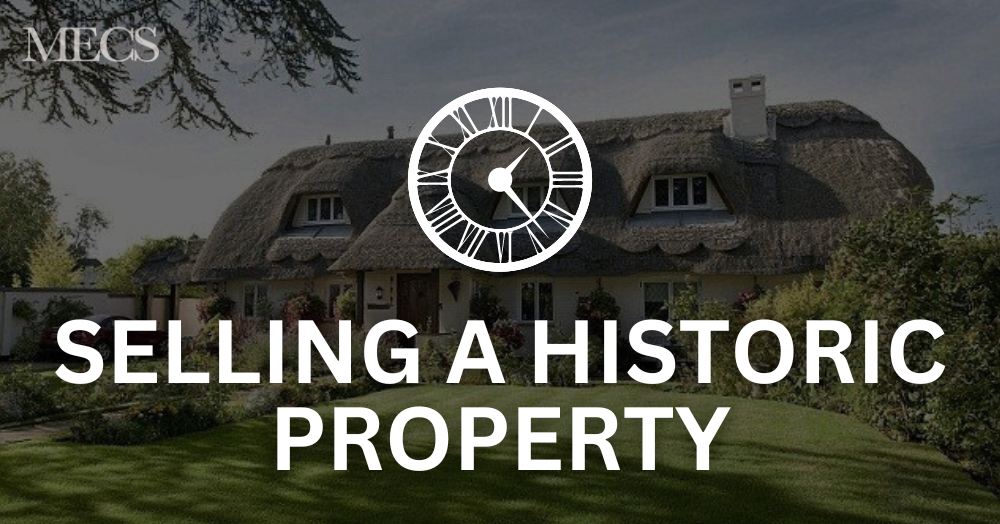Selling a historic property comes with its own set of challenges. It requires a delicate balance between preserving the past and attracting buyers who appreciate the unique charm and character of such properties.
Highlight the Historical Significance:
One of the key selling points of a historic property is its historical significance. Conduct thorough research to understand the property's past and its architectural or cultural significance. Highlight these unique aspects in your marketing materials, including brochures, online listings, and advertisements. Provide potential buyers with a detailed history of the property, showcasing its heritage value and any notable historical events associated with it.
Preservation and Restoration:
Preserving the original features and architectural elements of a historic property is crucial. Work with preservation experts and ensure that any renovations or restorations are done in a manner that maintains the property's authenticity. Avoid making drastic changes that may compromise its historical integrity. Repair and restore original elements wherever possible, such as wooden beams, period fireplaces, or ornate ceilings, to enhance the property's charm and appeal.
Market to the Right Audience:
Identifying and targeting the right audience is vital when selling a historic property. Appeal to buyers who appreciate the value of heritage and have a genuine interest in owning a piece of history. Consider engaging with historical societies, heritage organisations, and local communities that may have members actively seeking such properties. Utilise specialised online platforms and real estate agents experienced in selling historic properties to reach the target audience effectively.
Professional Staging and Photography:
Presenting the property in its best light is essential to attract potential buyers. Hire a professional photographer who specialises in architectural photography to capture the unique beauty of the historic property. Showcase the property's grandeur, intricate details, and well-preserved features through high-quality images. When staging the property for viewings, strike a balance between historical authenticity and modern comfort to help potential buyers envision themselves living in the space.
Collaborate with Preservation Organisations:
Collaborating with preservation organizations can be beneficial in terms of both marketing and ensuring the property's future preservation. Seek partnerships with local heritage or conservation groups, showcasing your commitment to preserving the property's historical integrity. Such organisations may be able to offer guidance, support, and even funding opportunities that can enhance the property's appeal and attract potential buyers who appreciate the significance of historical preservation.
Emphasise Potential Adaptive Reuse:
Highlight the potential for adaptive reuse when marketing a historic property. Many buyers are drawn to the idea of repurposing such properties for various uses, including boutique hotels, bed and breakfasts, event venues, or exclusive residences. Demonstrate the versatility of the property, illustrating how it can be adapted to meet modern living standards while preserving its unique historical character.
Conclusion:
Selling a historic property in the UK requires careful attention to preserving its historical significance while appealing to potential buyers. By highlighting the property's historical value, preserving its authenticity, targeting the right audience, utilising professional staging and photography, collaborating with preservation organisations, and emphasising adaptive reuse opportunities, you can successfully navigate the sale of a historic property while honouring its rich heritage. Remember, selling a historic property is not just a transaction but also an opportunity to pass on a piece of history to someone who will cherish and preserve it for future generations so get experts on your side so they can make sure all of this is achieved. With over a decade of experience, we are the perfect estate agents for your historic property.
0121 681 6327
info@mecsproperty.co.uk

